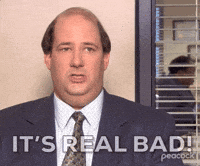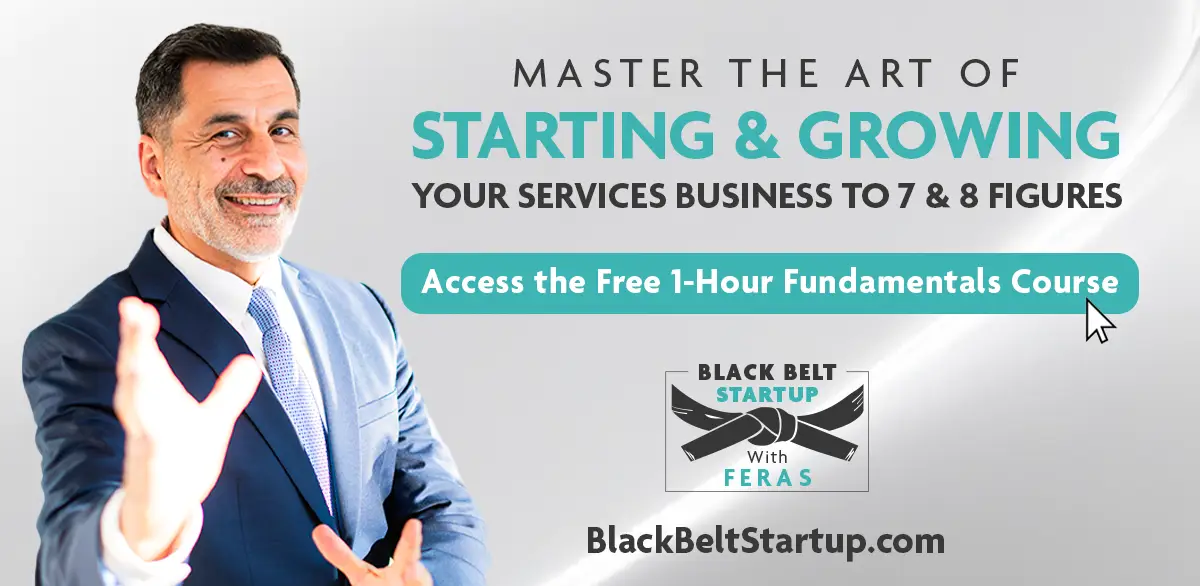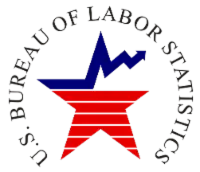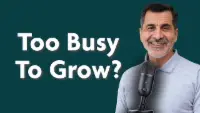
Turn Your Experience into a Services Business
Good Morning!
This past week, Meta announced significant layoffs. My heart goes out to everyone affected by job loss. I know how it feels—I lost my job in 2003 during the tail end of the dot-com bubble.
If I can support you in any way, please don’t hesitate to reach out. Just reply to this email, and I’ll get back to you.
On the Mat
- The Gig Economy
- Should YOU freelance?
- Are freelancers entrepreneurs?
Let's Train
💡 TLDR: If you’re diving into freelancing, think bigger. How can you leverage gig platforms to scale beyond freelancing and build a thriving business?
What’s Gi-g (🥋 pun intended) got to do with it?
Independent contractors (freelancers, gig workers) are self-employed and work with multiple clients on a project or contract basis. You set your hours, choose where you work, and enjoy flexibility, autonomy, and variety. But here’s the kicker:
Freelancers usually get no work benefits and have to handle all paperwork and taxes themselves. But the biggest challenge is unpredictable income, so many freelancers have no choice but to overbook on projects to maintain steady revenue.
So, should YOU freelance?
If you’re switching to freelancing from a full-time job:
- You’ll probably work more hours, not fewer.
- Your income will drop 50–60% in the first year.
- Hunting for clients is your second new full-time job.
- You need 6+ months of savings, not 3.

Then why do I help hundreds of founders transition from full-time to their own ventures?
Because there’s a lot of potential. A full-time job might be safer, but if you want to build a business, freelancing is a great way to start.
Are freelancers entrepreneurs?
Freelancers (or solopreneurs) are a type of entrepreneur who work independently, trading time for money by providing services directly to clients. While their focus is primarily on delivering quality work, other entrepreneurs aim to build scalable businesses by creating systems and teams that generate revenue beyond their personal involvement. Both paths involve entrepreneurship, but with different approaches to growth and scale.
But before you quit your day job and make an Upwork profile or look for clients on LinkedIn, I’d suggest:
- Testing the viability of your idea
Do you have skills or expertise that are in demand and potentially profitable?
Do some market research.
Then, before fully committing, try freelancing on the side and use it as a potential launch pad for a long-term freelance career.
Are you getting leads? Are they buying? Can you get some referrals?
- Making a long-term plan
Brennan Dunn outlines this strategy:
- Build your audience.
- Provide value to your audience.
- Run your business – don’t let it run you.
- Have systems and processes in place, especially for marketing.
- Familiarize yourself with and use the right tools.
Start small → Provide value consistently → Scale using systems 📈
Contrary to conventional freelancing wisdom, instead of depending entirely on platforms like Upwork, Freelancer, Contra, etc., for every project and every client, use them as one channel in your long-term strategy.
You Might Like These
Is Productizing the Secret to Maximum Agency Profitability?
In this episode, Jason Swenk sits with Bob Afsari and breaks down productizing: it boosts service business profitability by offering clear, tangible packages, eliminating scope creep, and streamlining operations. Unlike hourly retainers, productized services provide predictable pricing, improve client satisfaction, and empower teams with structured processes—resulting in higher efficiency, scalable growth, and better work-life balance.
BLS Occupational Outlook Handbook
Not sure which industry to focus on? The BLS Occupational Outlook Handbook highlights high-growth sectors for 2025 and beyond. It includes industries that are projected to experience job growth and will likely need support from third-party consultants and service providers, like:
- Healthcare & Social Assistance
- Renewable Energy: solar, wind, and clean tech
- AI-driven opportunities are exploding across all industries
Use this resource for additional data points when vetting your business idea and researching areas for business development.
Sharpen Your Blade
Busy ≠ Profitable: Fix Your Time Management Today
Being a founder isn’t about rushing from one thing to the next; it’s about getting what’s critical out of the door with the best quality possible.
In this week's live stream, I discuss 4 strategies to balance different demands without burning out:
🥋 Structuring project timelines for success
🥋 Aligning deadlines when managing multiple projects simultaneously
🥋 Managing risk and staying ahead of problems
🥋 Improving continuously through learning and iteration
The Dark Side of Side Hustling
I categorize side hustles into 3 types:
🥋 Time-for-Money Jobs:
Low-skill gigs like dog walking, or gig apps (Uber) offer little long-term value and don’t build professional skills.
🥋 Passive Income Myths:
Most "passive income" ideas (except investments) are misleading schemes that demand more effort than promised.
🥋 Skill-Related Side Projects:
Leveraging professional skills for side work (e.g., a tax accountant taking extra clients) can hinder focus and long-term success.
4 Cases When Side Hustling Is OK:
- Covering urgent financial needs
- Pursuing a hobby for enjoyment
- Learning new professional skills
- Testing a business idea before going full-time (what we discussed above)
Subscribe to the Newsletter
Subscribe to Startup with Feras for actionable insights, proven strategies, and practical resources to launch, grow, and scale your online business. Get exclusive tips delivered straight to your inbox!




